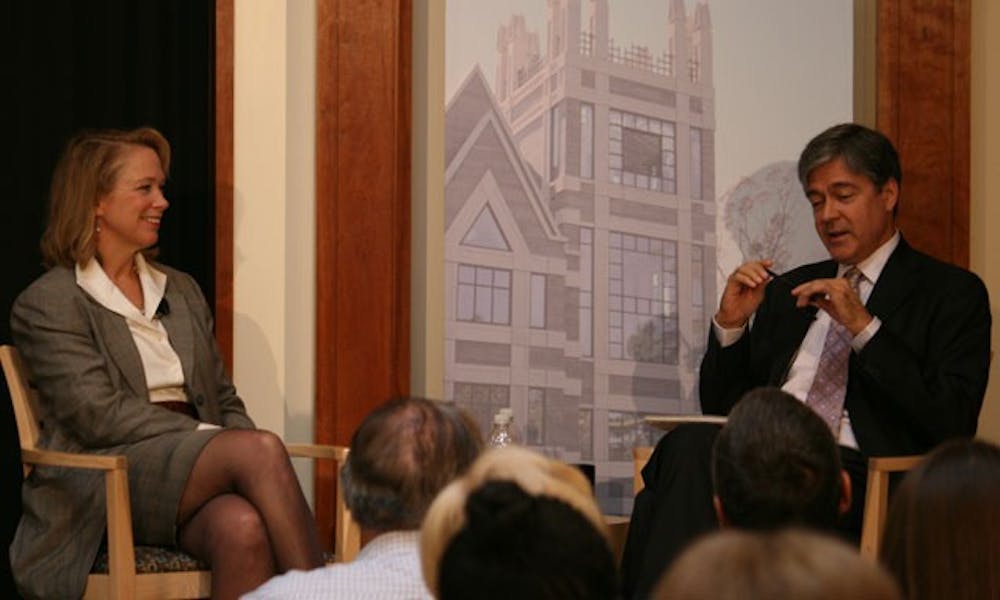Gail Rosseau, chief of surgery at the Neurologic and Orthopedic Hospital of Chicago, spoke as part of the Terry Sanford Distinguished Lectures series, which celebrates the inauguration of the Sanford School of Public Policy. Rosseau, a major supporter of President Barrack Obama’s 2008 election campaign, was also considered for the post of Surgeon General, The Chicago Tribune reported last December.
“[Rosseau is] one of the only handful of women doctors in the demanding field of neurosurgery,” Sanford Dean Bruce Kuniholm said.
John Harwood, Trinity ’78, chief Washington correspondent for CNBC, interviewed Rosseau in the event Saturday.
“American medicine is among the best in the world, while the American system of health care delivery is one of the worst.” Rosseau said.
As an example, Rosseau told the story of a woman who made an appointment for neurosurgery but later canceled because the employer determined that it was not a work-related injury.
“The surgeon recommended further physical therapy and aspirin,” Rosseau said.
The incident reflects the “absurdity of our system,” Rosseau said, adding that the U.S. must establish a new national order to reduce errors and paperwork, increase access and control costs.
“We’ll do it because it’s honest and fair to give all men and women their best chance in life” Rosseau said, quoting Terry Sanford, the new school’s namesake and the former Duke president.
To control the increased spending due to reform, Rosseau called for the establishment of a federal reserve board for health care cost.
“The pressures of special interest groups are too strong for commoners to resist,” Rosseau said. “It may be time to consider an autonomous agency.”
Aside from health insurance, Rosseau emphasized the need for greater medical literacy throughout the health care system.
As a long-term goal, Rosseau said she expects to see a student health advocacy group which will increase young people’s literacy of health issues. Students will know the normal ranges for blood pressures, become trained in cardiopulmonary resuscitation and pass a physical test, she said.
Regarding the issue of “death panels,” Rosseau recommended people discuss and document their end-of-life choices with government agencies in case they ever need to be put on life support.
Rosseau also said she is in favor of some elements of a single-payer system. She said U.S health care reform should involve a “formula that has the competitiveness and streamlining of the inefficient and expensive paperwork.”
Despite the complexity of the effort to reform health care, Rosseau rephrased a quote from former President Theodore Roosevelt to distill her thoughts on the issue.
“Health care reform for America is work worth doing,” Rosseau said.
Get The Chronicle straight to your inbox
Signup for our weekly newsletter. Cancel at any time.

